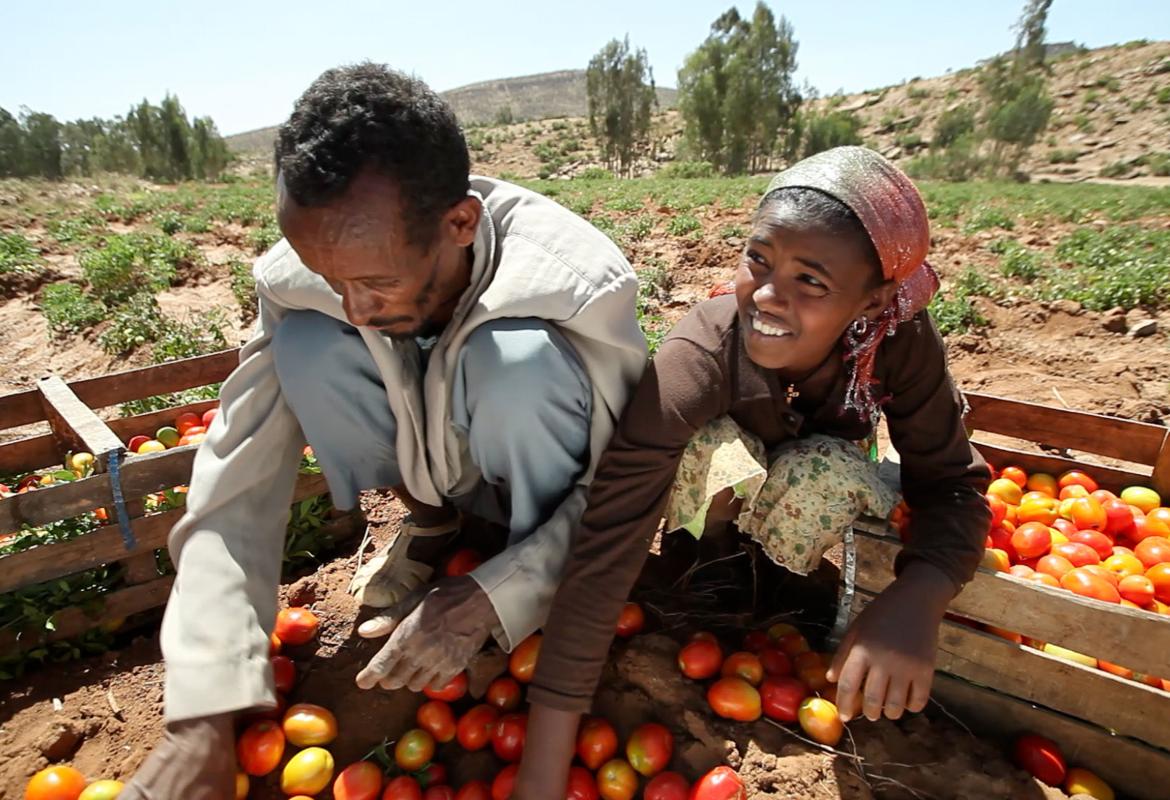The African Committee of Experts on the Rights and Welfare of the Child's (the Committee) Working Group on Climate Change and Children's Rights (the Working Group) joins all AU Member States, Regional Economic Committees, and all concerned stakeholders across the continent to commemorate the Africa Day of Food and Nutrition Security on 30 October 2022.
Recalling article 14 (2) (c) (d) of the African Charter on the Rights and Welfare of the Child (ACRWC) which requires States to ensure adequate nutrition and combat malnutrition, and the commitment under Aspiration 5 of Africa’s Agenda for Children 2040: Fostering an Africa Fit for Children, that every child grows up well-nourished and with access to the best necessities of life, Goal 2 of the Sustainable Development Goals, which aims to “end hunger, achieve food security and improved nutrition and promote sustainable agriculture”, as well as its accompanying target to “end all forms of malnutrition” by 2030, “ including achieving, by 2025, the internationally agreed targets on stunting and wasting in children under 5years of age”, the Committee’s Working Group applauds the AU and African Heads of State for dedicating 2022 as the Year of Nutrition for Africa and welcomes the commitment, which calls for "Strengthening Resilience in Nutrition and Food Security on the African Continent."
In recent years, a number of significant factors have caused the world to veer off course from its goal of eradicating all forms of hunger and malnutrition by 2030. The Working Group notes with concern that child hunger continues to be one of the major causes of child mortality in Africa. With 90% of African children not meeting the minimum acceptable diet criteria and about 60% not meeting the recommended minimum meal frequency, the effects of child hunger on children's physical, emotional, and
cognitive development are massive and irrevocable. The socioeconomic consequences of the COVID-19 pandemic exacerbate these issues. The Working Group notes that climate change is one of the major drivers of food insecurity and malnutrition in the continent, creating a complex and protracted crisis. The dynamics of child hunger on the African continent have been exacerbated by the numerous, cumulative effects of climate extremes and variability on food systems. The situation is expected to
worsen due to seasonal food scarcity and climatic shocks such as droughts and floods, which cause short-term malnutrition, morbidity, and mortality in
children in Africa. Climate change has an impact on household food access, maternal and childcare and feeding practices, health, and undernutrition in mothers and children, as well as its root causes. If current trends continue, the Intergovernmental Panel on Climate Change (IPCC) predicts that between 200 and 600 million more Africans will go hungry by 2080.
While commemorating this significant day, the Committee, through its Working Group, seizes the opportunity to remind Member States of their obligation to end child hunger and malnutrition and its driving factors, including climate change in accordance with article 14 of the ACRWC; Aspiration 5 of Agenda 2040; and other continental laws, policies, and strategies in place, such as the Comprehensive Africa Agriculture Development Programme (CAADP); the Malabo Declaration on Accelerated Agricultural Growth and Transformation; the African Union Agenda 2063; the African Regional Nutrition Strategy (2015-2025); and the African Union Climate Change and Resilient Development Strategy and Action Plan (2022-2032).
The Committee, on this occasion of celebration, further urges Member States to:
- Adopt and implement laws, policies, programs, and other institutional measures to ensure access to adequate nutrition, and combat disease and malnutrition;
- Develop climate change adaptation strategies that integrate nutrition, agriculture and food security, maternal and childcare and feeding practices, and health, including environmental health and water and sanitation;
- Ensure that children and their families in areas susceptible to food crises brought on by climate change are equipped to deal with the effects, by increasing national capacity for alternative feeding, micronutrients, and models for alternative, climate-adapted crops, sustainable food systems, anticipatory action, and shock-response systems, among other things;
- Expand social security (including cash transfers) and hunger-relief programs; and
- Ensure climate information is accessible to affected communities and decision-makers, including children.
Civil Society Organizations and other non-state actors are urged to:
- Generate evidence-based information on effective adaptation strategies to climate change-induced food insecurity, child hunger, and malnutrition;
- Collaborate with relevant government institutions and key stakeholders to combat child hunger and malnutrition in the face of climate change; and
- Raise awareness about climate change and its impacts on food systems in order to improve the resilience and preparedness of children, families, and communities.







